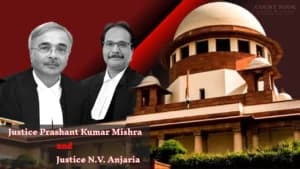In a peculiar case that took off from a flight meal gone wrong, the Madras High Court has partly allowed an appeal by Air India, setting aside a lower court's ₹1 lakh compensation order to a passenger who found strands of hair in his food during a flight from Colombo to Chennai. Justice P.B. Balaji, while acknowledging the airline’s negligence, observed that the plaintiff had failed to substantiate his claim for damages through evidence.
Background
The dispute arose from a 2002 incident when P. Sundarapariporanam, a frequent flyer, was served a sealed meal packet on Air India flight IC 574. To his dismay, he noticed hair strands in the food. According to his complaint, the crew did not assist or provide a complaint form, forcing him to lodge a written complaint after landing.
Air India later sent an apology, calling it a "regrettable incident under investigation." Unsatisfied, the passenger issued a legal notice and eventually filed a suit in 2010 seeking ₹11 lakh in damages, citing nausea and stomach pain caused by the contaminated meal.
The airline denied negligence, arguing that the food was supplied by Ambassador Pallava, a reputed five-star hotel caterer, and suggested that the hair could have fallen in after the packet was opened. It also claimed that the apology was "a matter of courtesy," not an admission of fault.
Court's Observations
Justice Balaji's detailed 15-page judgment noted that neither side produced oral or documentary evidence during the trial. Still, the written statements themselves were revealing.
"The defendants have blown hot and cold even in their written statement," the Court remarked, pointing out that while Air India denied wrongdoing, it simultaneously admitted that a complaint was made and communicated through official channels.
The bench observed,
"In one breath, the airline denies the complaint; in another, it admits that the complaint was radioed and a senior catering manager met the passenger after landing. Such contradictory stands do not inspire confidence."
Citing the principle of res ipsa loquitur-Latin for "the thing speaks for itself"-the Court held that negligence was evident from the very nature of the incident. Justice Balaji wrote that when a sealed meal served on a commercial flight contained hair strands, the negligence "proved itself," shifting the burden to the airline to show due care, which it failed to do.
On the argument that the hotel caterer should have been made a party, the Court dismissed it firmly.
"The passenger's contract was with the airline, not its caterer," the judge held. The food was part of the ticket cost, and Air India was vicariously liable for the acts of its agents.
Decision
However, the High Court disagreed with the lower court’s decision to award ₹1 lakh in compensation. Justice Balaji reasoned that while negligence was established, there was "no iota of evidence" of physical harm or quantifiable loss.
"In a suit for damages, the plaintiff bears the burden of proving both liability and loss," the Court said.
The judge emphasized that since Sundarapariporanam had chosen not to testify or produce medical records, the award could not stand. Still, the Court recognized that the lawsuit had served as a "deterrent to the airline" for future conduct.
Ultimately, the compensation decree was set aside. Yet, acknowledging Air India’s negligence, the Court imposed costs of ₹35,000 ₹15,000 towards court fees and ₹20,000 as counsel fees-to be paid to the passenger within four weeks.
The bench observed,
"While no compensation can be sustained without proof of damage, the negligent conduct of the defendants warrants the imposition of costs."
The Court thus partly allowed the appeal, closing the associated miscellaneous petition.
Case Title: General Manager, Southern India Region, Air India Ltd. & Others vs. P. Sundarapariporanam















